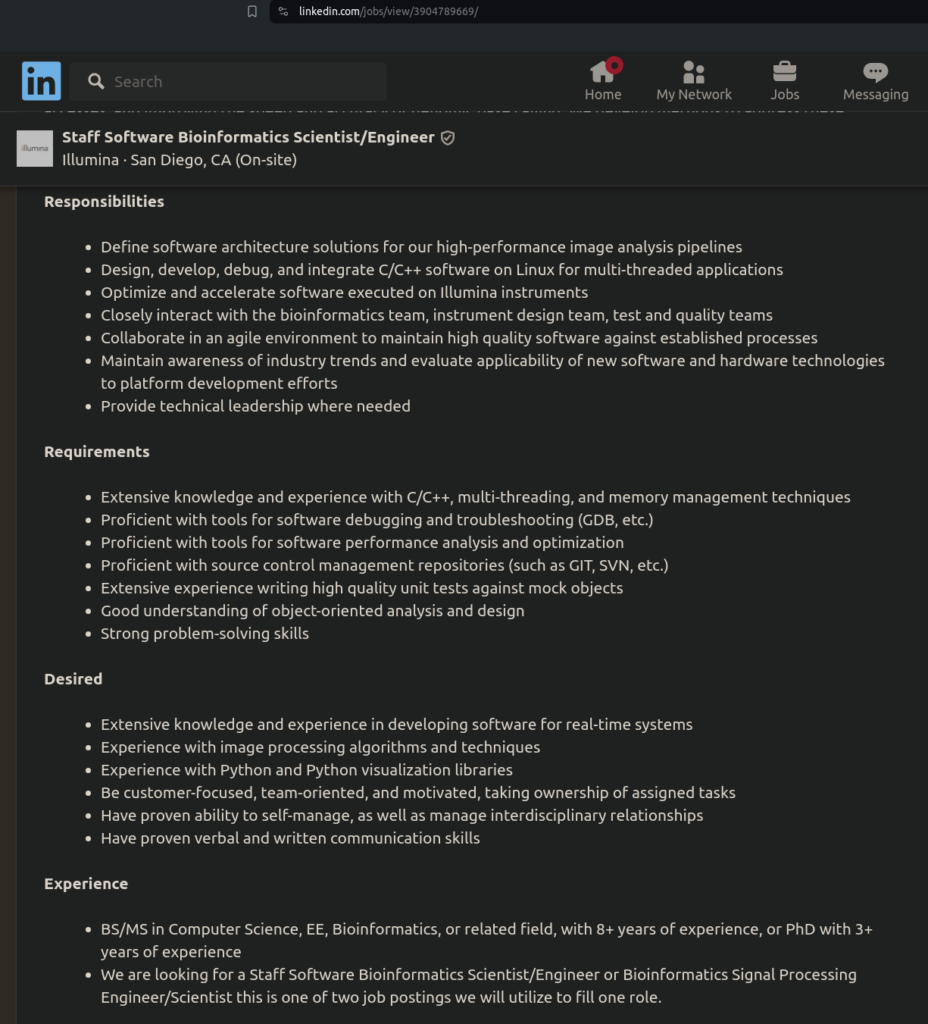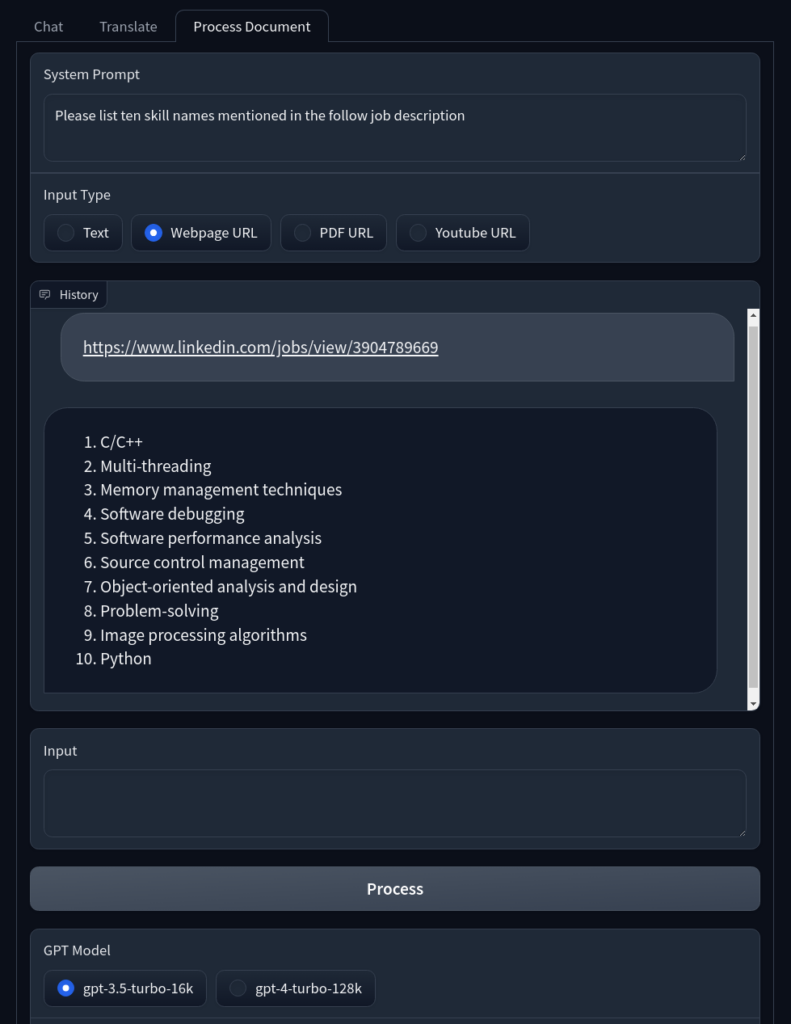I recently encountered a surprising situation on LinkedIn where the platform’s algorithm suggested I matched only 8 out of 10 required skills for a Next-Generation Sequencing (NGS) data scientist role in our group. Given my background, I was expecting a perfect match.
A Real-World Example: GPT-3.5 Effortlessly Surpasses LinkedIn’s Job Summarization Algorithm
The issue stemmed from LinkedIn’s duplication in listing the skills “Next-Generation Sequencing (NGS)” and “Next-Generation Sequencing” separately, recognizing my expertise in the former but not the latter. Furthermore, it incorrectly interpreted references to “pipeline” work in the job description as relating to “Sales pipeline development” and “Oil pipeline development,” mistakenly tagging me with expertise in “Sales pipeline development,” which is beyond my field. 😅

Convinced that advanced language models like GPT-3.5 could outperform LinkedIn’s algorithm in accurately extracting relevant skills from job descriptions, I decided to perform a simple test. Here’s the crucial portion of the job posting detailing the responsibilities and requirements of this role.
The Senior Expert Science & Technology is within the Quantitative Sciences & Statistics group within innovative Cell & Gene Therapy Organization. We work in a highly collaborative environment, and the successful candidate will build and develop bioinformatics support to next generation sequencing (NGS) technologies and platforms in advancing AAV gene therapy platform. He/she/they will have an active role in leading and managing bioinformatics initiatives and work in close collaboration with wet lab scientists and internal and external collaborators.
Your responsibilities will include, but are not limited to:
• Work as a lead bioinformatics scientist both independently and as a member of cross-functional teams to lead the effort on NGS experimental design, data analysis and interpretation.
• Develop bioinformatics pipelines for NGS data analysis, data management and enabling data analysis pipelines in routine analysis. Provide troubleshooting and maintenance supports.
• Produce high quality written documentation including study protocols, data analysis plans and reports.
• Refine algorithms and tools for sequencing data analysis and propose improvements.
• Communicating internally with other departments and externally with collaborators about technological capabilities and gap analysis.
• Lead bioinformatics pipeline validation and transfer.
• Support the wider R&D team with general bioinformatics needs.
What you'll bring to the role:
• PhD in bioinformatics, computational biology, biostatistics, molecular biology, virology or related discipline.
• At least 5 years of relevant industry work experience is required.
• Strong domain knowledge in genomics, excellent programming skills, and deep experience with next-generation sequencing and analysis.
• End-to-end complete life cycle experience in analysis and workflow/pipeline development for major NGS platforms for mutation analysis, genome mapping, variant calling and interpretation.
• Strong communication skills, ability to work both independently and collaboratively, to manage multiple concurrent, fast-paced projects and to work with multidisciplinary teams.
• Ability to set up bioinformatics computation systems from ground up.
• Experience in virology or viral gene therapy and working experience in GxP environment is considered a plus.Remarkably, GPT-3.5 accurately identified all ten skills mentioned in the job posting, showcasing its superior comprehension and summarization abilities.

More interestingly, GPT-3.5 was able to spot inconsistencies that LinkedIn’s algorithm overlooked, even without access to the job description’s content, relying solely on the job title and LinkedIn’s skill list.

Clearly, and as expected, LLM is doing a better job here in summarizing job descriptions. It is very likely that LinkedIn’s current system is more cost-effective, and they are probably exploring LLM-based solutions for future enhancements. This inclination towards LLM signifies that the future of processing and interpreting complex information lies within the capabilities of these advanced models. Their unparalleled understanding and processing of nuanced language suggests a significant evolution in the management and analysis of professional information.
Enhanced HomeGPT Applicaiton for Webpage Processing
Inspired by the capabilities of the LLM model in analyzing job descriptions, I have upgraded the HomeGPT repository to now include the ability to extract and analyze text content from web pages using LangChain and its underlying packages in conjunction with LLM.
For instance, by providing a LinkedIn job post URL, the application can parse the HTML webpage and extract information as per the specified instructions in the system prompt section.


It’s also worth mentioning that this latest version of the HomeGPT application can handle online PDFs and YouTube videos with captions, all thanks to the LangChain library.